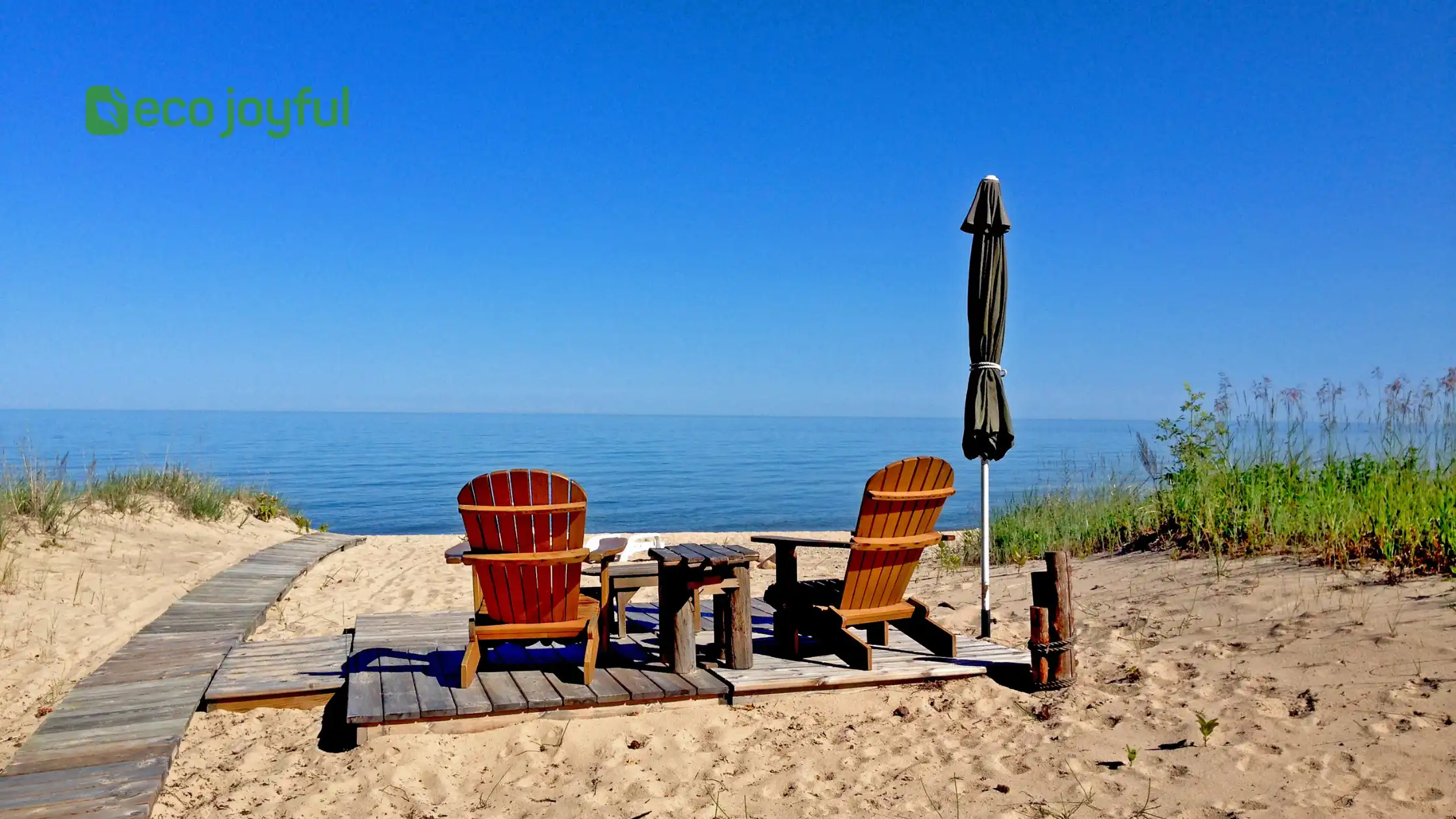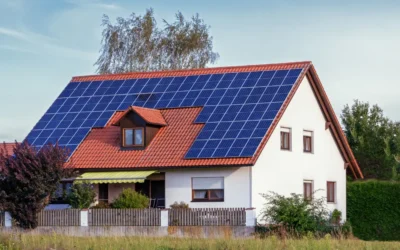Living off the Grid in Michigan offers an opportunity to embrace a self-sufficient lifestyle and disconnect from traditional utilities, relying on renewable energy and sustainable practices. In addition to the peaceful and remote setting, living off the grid in Michigan allows for reduced reliance on fossil fuels, lower utility costs, and a smaller ecological footprint.
This article explores the challenges and benefits of living off the grid in Michigan, including finding suitable land, setting up renewable energy sources, and sustainable water and waste management systems. Moreover, it highlights the importance of preparing for harsh weather conditions and building a community of like-minded individuals for support and resource-sharing.
With proper planning and careful consideration, living off the grid in Michigan can provide a fulfilling and environmentally friendly lifestyle.
Benefits Of Living Off The Grid In Michigan
Living off the grid in Michigan offers numerous benefits that make it an appealing choice for those seeking a sustainable and self-sufficient lifestyle.
By disconnecting from the traditional power grid and embracing renewable energy sources, individuals can experience lower energy costs, reduce their environmental impact, and gain a sense of self-sufficiency and independence.
1.1 Lower Energy Costs
One of the key benefits of living off the grid in Michigan is the substantial reduction in energy costs. By harnessing the power of solar panels, wind turbines, or even hydroelectric systems, residents can generate their electricity for free.

Unlike relying on fossil fuel-dependent utility companies, off-grid living allows individuals to break free from skyrocketing energy prices. This newfound energy independence not only saves money but also contributes to financial stability in the long run.
1.2 Environmental Impact Reduction
Living off the grid in Michigan presents a remarkable opportunity to reduce your environmental impact. By generating electricity through renewable sources instead of relying on fossil fuels, you can significantly decrease your carbon footprint.
Choosing renewable energy alternatives helps combat climate change and preserves Michigan’s natural beauty. Additionally, off-grid living promotes responsible water usage, waste management, and a sustainable approach to agriculture, creating a greener and more sustainable future for generations to come.
1.3 Self-sufficiency And Independence
Embracing off-grid living in Michigan fosters a sense of self-sufficiency and independence. By becoming less reliant on external resources, individuals can develop valuable skills such as growing their food, collecting rainwater, and managing energy systems.
These skills not only provide a sense of accomplishment but also offer protection against unexpected circumstances such as power outages or supply chain disruptions. Living off the grid empowers individuals to take charge of their own lives and become self-reliant, ensuring a more secure and resilient future.
Challenges Of Living Off The Grid In Michigan
Living off the grid in Michigan can be a rewarding and fulfilling lifestyle choice, allowing individuals to disconnect from traditional utilities and live a self-sustainable life.
However, it also comes with its fair share of challenges. In this article, we will explore the challenges of living off the grid in Michigan, including extreme weather conditions, limited access to resources, and regulatory and permitting challenges.
2.1 Extreme Weather Conditions
Michigan is known for its unpredictable and harsh weather conditions, with cold winters and hot summers. Living off the grid means relying on renewable energy sources such as solar panels and wind turbines, which can be challenging to maintain during extreme weather events.
During the cold winter months, heavy snowfall can cover solar panels, reducing their efficiency. It requires regular cleaning and maintenance to ensure optimal performance. Additionally, freezing temperatures can affect battery capacity, making it crucial to have backup power sources.
On the other hand, hot summers can lead to intense heat, which can cause solar panels to overheat. Adequate ventilation and cooling systems are essential to prevent any damage and maintain the efficiency of renewable energy systems.
2.2 Limited Access To Resources
Living off the grid in Michigan often means being in remote locations, away from urban centers. While this provides a sense of peace and tranquility, it also means limited access to essential resources.
One of the significant challenges is access to clean water. Many off-grid individuals rely on wells or rainwater collection systems for their water supply. However, drought conditions and limited groundwater sources can pose challenges to maintaining a consistent and reliable water source.
Another aspect is access to food. While some individuals choose to grow their own produce, shorter growing seasons in Michigan can limit the variety and availability of fresh produce. This necessitates proper planning and the use of preservation methods to ensure a sustainable food supply throughout the year.
2.3 Regulatory And Permitting Challenges
Living off the grid in Michigan also comes with regulatory and permitting challenges. Government regulations often focus on traditional utility systems, making it difficult for off-grid individuals to navigate the legal landscape.
Permitting requirements for renewable energy systems, such as solar panels and wind turbines, can be complex and time-consuming. Off-grid homeowners may need to obtain multiple permits and adhere to specific building codes, adding to the overall cost and effort required.
Additionally, local zoning ordinances may restrict the installation of renewable energy systems or limit the use of composting toilets and rainwater harvesting systems.
Off-grid individuals need to research and understand the regulatory requirements in their specific area before starting their off-grid journey.
Tips For Successful Off-grid Living In Michigan
Discover useful tips for successful off-grid living in Michigan. Learn how to thrive in a self-sustaining lifestyle, from harnessing renewable energy sources to cultivating your food. Embrace the unique challenges and rewards of living off the grid in this beautiful state.
3.1 Efficient Energy Generation And Storage
Living off the grid in Michigan requires careful consideration of energy generation and storage. One of the essential tips for successful off-grid living is to focus on efficient methods of generating and storing energy.
Investing in renewable energy sources such as solar panels or wind turbines can provide a sustainable and reliable source of power. These systems can be connected to a battery storage system, which allows you to store excess energy for use during cloudy days or at night.
By utilizing efficient energy generation and storage methods, you can minimize reliance on traditional power sources and reduce your environmental impact.
3.2 Water Collection And Conservation Methods
Water is a vital resource for off-grid living, and it is essential to have efficient water collection and conservation methods. One of the most effective ways to collect water is through rainwater harvesting. Installing a rain barrel or a larger, more complex rainwater collection system can help you capture and store rainwater for various purposes. Additionally, implementing water conservation methods such as low-flow fixtures and efficient irrigation systems can further reduce water consumption. It is crucial to prioritize water conservation and explore various techniques to ensure a sustainable water supply for your off-grid lifestyle in Michigan.
3.3 Sustainable Agriculture And Food Production
Living off the grid in Michigan offers an excellent opportunity to cultivate your food and reduce dependency on external sources. Sustainable agriculture and food production play a crucial role in successful off-grid living.
By implementing organic farming practices, using composting techniques, and choosing native plant species, you can create a thriving garden that provides a variety of fruits, vegetables, and herbs.
Additionally, consider exploring alternative food production methods such as aquaponics or hydroponics, which can be particularly beneficial in regions with shorter growing seasons.
By focusing on sustainable agriculture and food production, you can enjoy a self-sufficient lifestyle while promoting environmental conservation in Michigan.
Conclusion
As the pace of modern life continues to accelerate, more and more people are seeking alternative ways to disconnect and live off the grid.
Michigan offers a unique opportunity for those seeking a simpler, more self-sufficient lifestyle. From solar power to sustainable farming, living off the grid in Michigan allows individuals to reduce their carbon footprint and become more in tune with nature.
With its vast natural beauty and resources, Michigan provides an ideal setting for those looking to embrace a more sustainable and independent way of life.
Discovering the joys of living off the grid in Michigan can be a life-changing experience.








